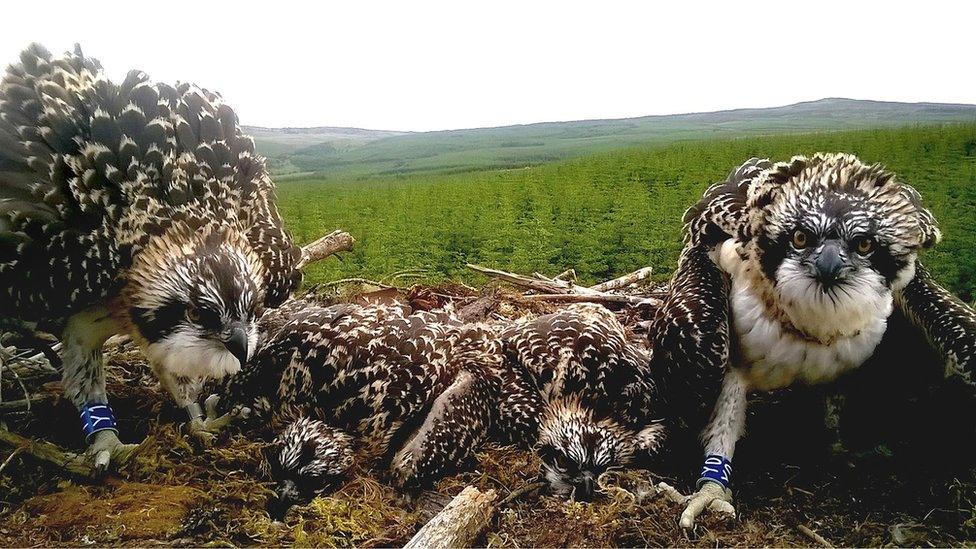Kielder conservation efforts pay off as ospreys fledge
- Published
Osprey chick takes first flight
Conservationists have credited the success of an osprey breeding programme to long-term planning and "sensitive" habitat management.
The Kielder Osprey Project in Northumberland has overseen the fledging of 114 chicks in 15 years.
This year 11 young birds have taken their inaugural flights at the forest.
Osprey co-ordinator Joanna Dailey said it was "amazingly satisfying seeing them take to the air" doing a circuit of their tree-top nest.
"It's a big boost to conservation efforts given that the species was extinct in England for almost all of the 20th Century," she added.
"Because we have high definition cameras on many of the nests we can follow the story as chicks pluck up courage to take their first flight."
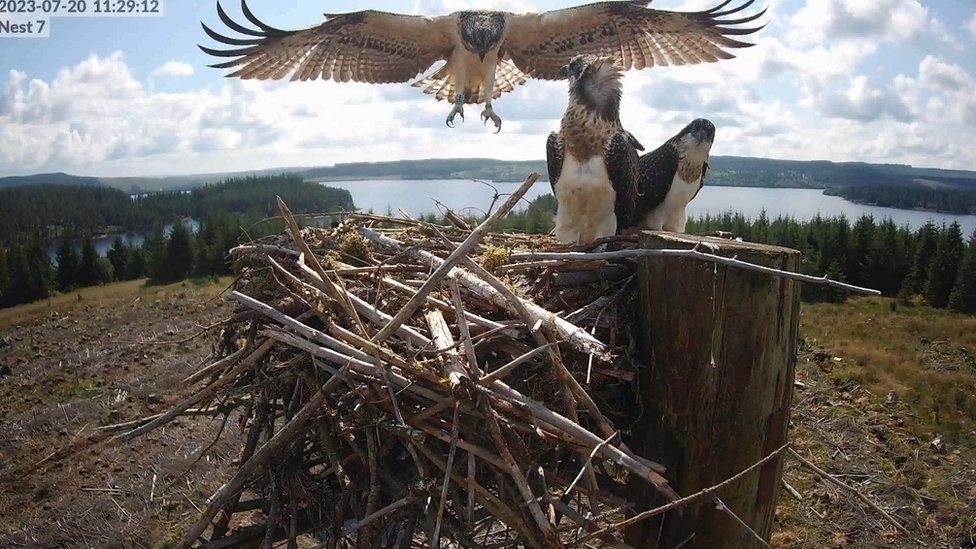
Gilsland lands safely back on the nest after her first flight lasting less than a minute
Fledging this year has been up to two weeks later in part due to the wet weather.
Unique rings have been fitted to eight of the young ospreys to help identify them in the future.
Three others that were born on a wild nest in the forest could not be ringed as it was not possible to reach them safely.
Duncan Hutt, conservation director at Northumberland Wildlife Trust, added: "It's no accident ospreys have returned to Northumberland in such strength. It's the result of long-term planning, team-work and sensitive habitat management.
"It's a magnificent bird which is back where it belongs," he said.
In the next few weeks the juvenile birds will stay close to their nests as they perfect their flying skills and learn how to hunt.
They will need to acquire sufficient body fat before their 3,000 mile migration to sub-Saharan Africa for the winter.

Follow BBC North East & Cumbria on Twitter, external, Facebook, external and Instagram, external. Send your story ideas to northeastandcumbria@bbc.co.uk, external.
Related topics
- Published20 April 2023
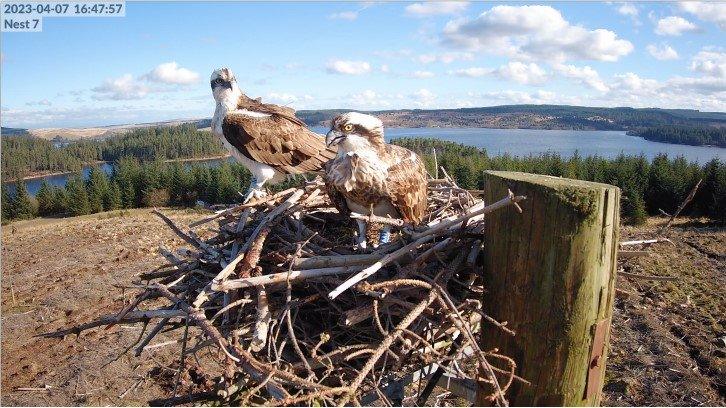
- Published29 July 2022
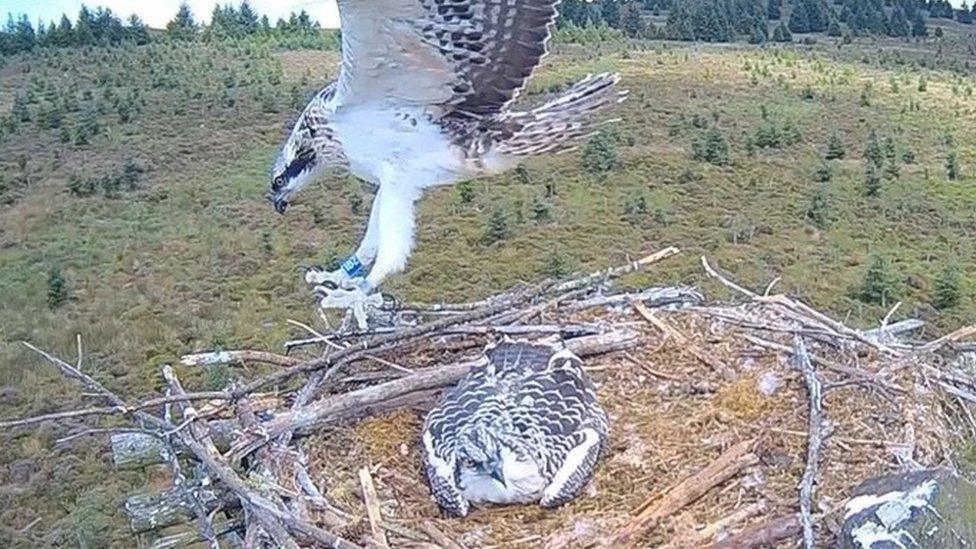
- Published10 May 2022
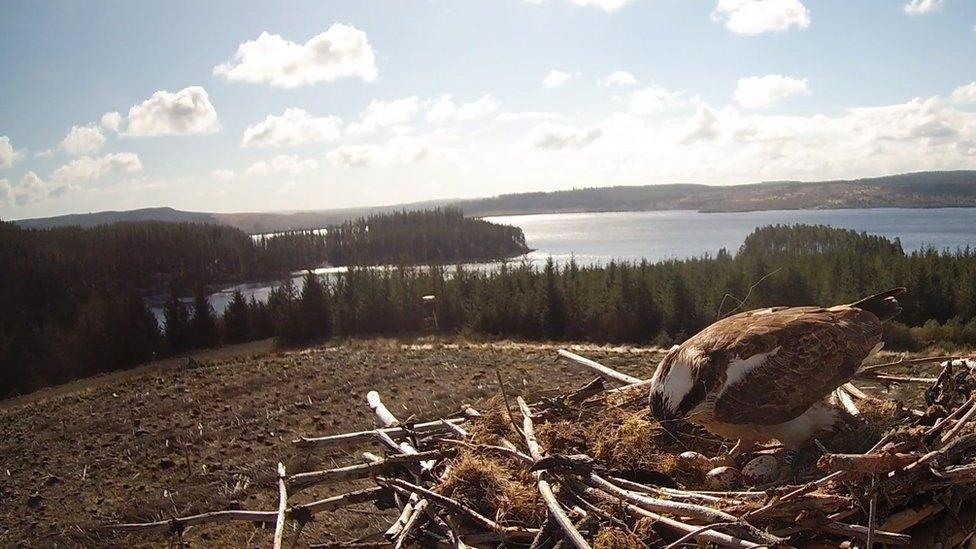
- Published6 July 2016
